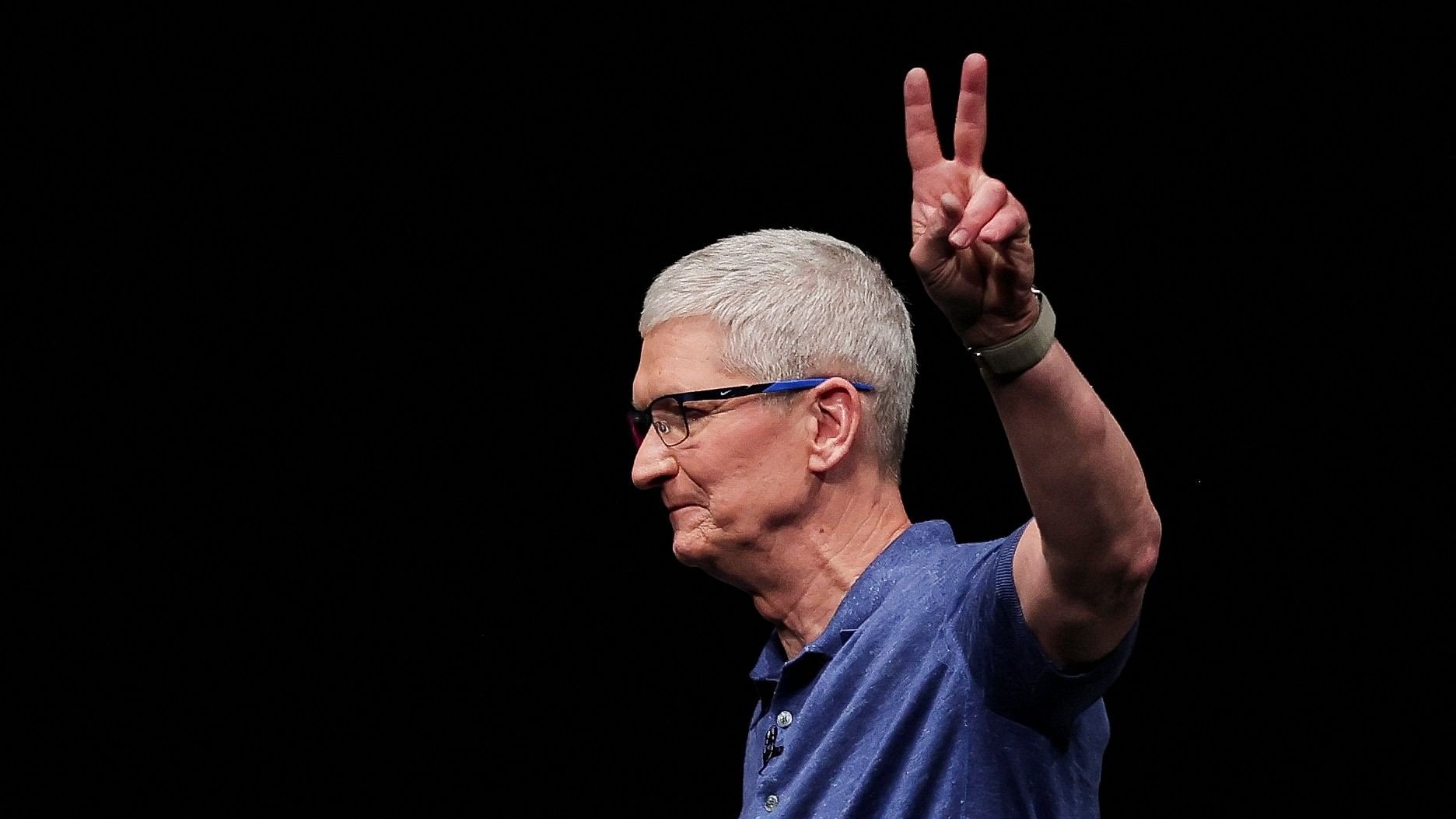
Apple CEO Tim Cook
Credit: Reuters Photo
By Dave Lee
Over the past year and a half, many have been desperate to share a stage with artificial intelligence wunderkind Sam Altman. Microsoft Corp. couldn’t wait to wheel out the OpenAI co-founder to show how ahead of the game it was; world leaders stood beside him to show how they were in the loop on the future; and conference organizers contorted their schedules to accommodate the most powerful man in the world of AI.
Yet, while Altman was in attendance at Apple’s developer conference on Monday, he was a spectator like almost everyone else. It was disappointing for him, you might think, because it was arguably the most significant public moment so far in OpenAI’s short history: ChatGPT is on the cusp of gaining hundreds of millions of new users through the world’s most popular devices. Beginning later this year, iPhone, iPad and Mac users — if they own a sufficiently up-to-date model — will be directed to ChatGPT to answer complex queries that need “world context.”
The news is being framed as Apple’s admission that it is behind on cutting-edge AI, turning to an outsider to fill in a feature shortfall. This is true, but only to an extent. This partnership — call it temporary outsourcing — demonstrates how, in fact, Cook may be the most powerful man in AI because he is pulling the strings on what will be the first truly mainstream AI device: the iPhone.
Previously, I have argued that Apple has ample time to get AI integration right and should resist being forced to bombard users with AI functionality just because Wall Street demands a quick way to boost iPhone sales. By making many of these new features an opt-in beta—meaning only users who seek them out will use them, for now — Apple is smartly threading that needle.
Part of Apple’s strategy is to draw clear distinctions between its own “AI” — which stands for Apple Intelligence — and the characteristics of existing AI — that is, artificial intelligence. Apple Intelligence mostly happens on its devices, making it inherently more secure and faster to respond than queries that have to be sent to the cloud. It can draw on “personal context about users, data it has purely because the iPhone is central to many digital lives — emails, calendars, text messages, pictures and apps.
This volume of insight is impossible for any other company to replicate, and you would likely not trust them to do so. “You should not have to hand over all the details of your life to be warehoused and analyzed in someone’s AI cloud,” said Apple’s head of software engineering, Craig Federighi, during the keynote speech. (Apple’s cloud is fine, naturally.)
OpenAI’s ChatGPT, on the other hand, is more easily copied — in time. Apple hasn’t quite managed it yet, but it will. For now, though, it has begrudgingly turned to OpenAI, though ChatGPT’s presence on Apple devices is presented more as a disclosure than an enthusiastic shout-out. Each time a piece of information is sent to OpenAI’s servers, the user will be alerted and must give permission. What’s more, the integration won’t mean any new direct customers for OpenAI because queries will be made free and without the need to sign up. OpenAI won’t even benefit from a tidal wave of additional data on which to build its technology; Federighi insisted “your requests and information will not be logged.”
As an added kicker, Federighi mentioned that Apple would be looking to work with companies beyond OpenAI — a nod that sent shares in Google-parent Alphabet Inc. up because it was also said to have been in talks with Apple over integration of its ChatGPT competitor, Gemini. Apple’s shares, on the other hand, took an almost 2% tumble on Monday, perhaps on account of a lack of surprises — a Bloomberg News report had already revealed everything of note that was announced.
But the lesson for investors to take away is that Cook is the AI kingmaker. Apple gets to decide which company gets access to the more than 2 billion active Apple products and on what terms. Google’s willingness to pay $20 billion a year to be the default search engine on the iPhone is a taste of how valuable capturing the iPhone user is — and that was just for online search. The prize of being the primary AI platform for AI users will eclipse that, which is why Apple will strive to provide it itself.
Apple is a company that hates to ever admit it needs outside help. But it’s not too proud that it would refuse it completely when circumstances demand it, as they do now. But Apple’s frenemies never become its friends. OpenAI is on Apple devices because Apple was too slow, but make no mistake, Apple will want to make its partnership with OpenAI obsolete as soon as possible.